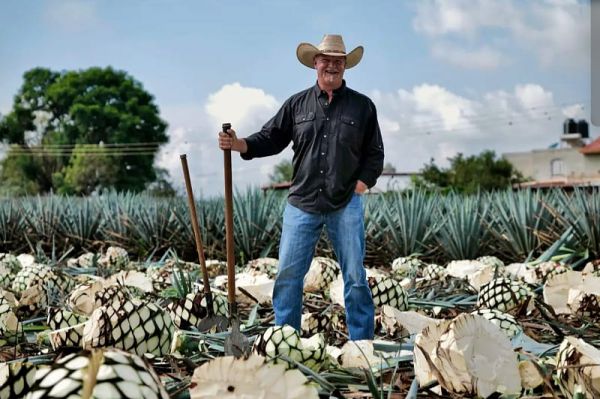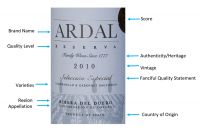Log in to your account
Lost password?Sales and Marketing
Critical Tools to Help Importer and Distributor Sales Reps Succeed
Today’s environment for both new and existing brands has never been more competitive. Each month, seemingly more and more sales reps with an endless supply of strong products call on a finite number of on- and off-premise accounts.
05/02/2017

Current, Accurate Product Tech Sheets and Sell Sheets
Nothing says, “We really don’t care about our products or your business” louder than product tech and sell sheets with old, inaccurate or skimpy information. This is equivalent to a PhD candidate handing in a doctoral thesis filled with grammatical and spelling errors. This creates an overall impression that the importer or distributor is sloppy, lazy and unprofessional. Many small, family-owned producers sell to multiple export markets these days. Aside from sending containers with products, producers must provide a minimum of materials to support sales, including an up-to-date tech sheet and sell sheet. At the very least, a tech sheet written in the language of the producer’s home market that can easily be translated. Many accounts expect a wine tech sheet that lists alcohol, total acidity and pH, in addition to a complete summary of harvest notes, viticulture, winemaking methods.
Useful Shelf Talkers
Many retail stores are staffed with knowledgeable wine experts, so their need for shelf talkers is minimal. Small shops may have only an owner and one or two workers to do everything from order products, stock shelves, write e-newsletters, ring up purchases and make deliveries. These stores may not have enough staff on the floor to educate customers. Many retailers, including chain stores and stores with locations in multiple states, want useful shelf talkers that list good scores for current vintages. These stores may focus on big brands from large distributors, products that move quickly and ratings from renowned wine publications that can help move product.
New Press Mentions and Product Placements
The importance of good press mentions for products cannot be overstated. However, press about products is similar to conventional, mainstream news: it loses its value over time. Fresh, timely press helps generate buzz about a product, the best kind of free advertising for a brand. An importer or distributor website must be kept current with both wine and mainstream press. Similarly, new product placements for known, new and trendy retailers and restaurants are marketing capital that should be updated and freely shared with accounts. Often, buyers want to know where a given product is being sold so they can formulate a good pitch or story for their customers. “That new restaurant up the street just added this wine to their BTG list” can often push the tipping point far enough for the rep to make a sale.
Market Activity That Generates Interest in the Brand
Every year, producers have key people in the market for grand portfolio tastings. This is the perfect opportunity to take advantage of their presence to host lunch, dinner or special events that can build on the brand buzz generated by the larger tasting or event. There is no better way to help build a brand than having a winemaker, general manager or master blender host an event, where they can help sales reps build strong, personal relationships with accounts.
Smart, Targeted “Work With” Should Have Strategic, Long-Term Goals
A well-timed “work with” can help jumpstart a new product placement or strengthen a fledgling relationship. It can also take the form of a volunteer pouring or event for a key account. Almost always, this kind of commitment from a sales rep comes back in the form of business. More importantly, there should always be short- and/or long-term goals to work toward regarding “work-withs.” When considering “work with,” importers and distributors should always think about putting the right product and producer resources with the right account. If a restaurant account has servers and some who are hungry to learn the finer points about the Japanese whiskey or Brunello di Montalcino in a given importer and distributor portfolio, a “work with” staff training with producer partner makes a lot of sense. Some producers will taste their products with food to enhance a stronger impression for servers. Strategic, long-term thinking differs fundamentally from short-term, tactical thinking. Rather than a big, single order, the goal is an ongoing process of finding ways to help your account succeed.
Integrate Web and Social Media Content to Develop Your Community
It’s great if importers or distributors represent producers with a webpage or FB page for a given brand or product. For some products, producers, importers or distributors will create a website just for a single brand or specific PR/Marketing campaign. Quite often, product tech and sell sheets contain QR codes that point back to an importer or distributor website. Many top importers and distributors expend great resources to create content (e-newsletters, seasonal or holiday catalogs, blogs), only to adopt a “push model” for distribution (send content out via opt-in subscription list) or post it on a website in “static” fashion, then trust that their accounts will find and review it. All these important pieces must be integrated so that importers and distributors can develop their communities, their customer accounts, and engage with them interactively to enhance strong relationships for their sales reps. If an event, tasting or dinner can spawn a conversation with an account on FB, Twitter or another social media outlet, this is gold, and should be treated as such. Producing different, complimentary content for each social media outlet is good practice, to encourage customer accounts to keep abreast of portfolio and market activities in as many ways as possible.
Building healthy, long-term relationships is key, but before a rep visits a prospective account for the first time, there are some basic tools or weapons that every importer or distributor should give their sales reps to help them succeed.
Current, Accurate Product Tech Sheets and Sell Sheets
Nothing says, “We really don’t care about our products or your business” louder than product tech and sell sheets with old, inaccurate or skimpy information. This is equivalent to a PhD candidate handing in a doctoral thesis filled with grammatical and spelling errors. This creates an overall impression that the importer or distributor is sloppy, lazy and unprofessional. Many small, family-owned producers sell to multiple export markets these days. Aside from sending containers with products, producers must provide a minimum of materials to support sales, including an up-to-date tech sheet and sell sheet. At the very least, a tech sheet written in the language of the producer’s home market that can easily be translated. Many accounts expect a wine tech sheet that lists alcohol, total acidity and pH, in addition to a complete summary of harvest notes, viticulture, winemaking methods.
















